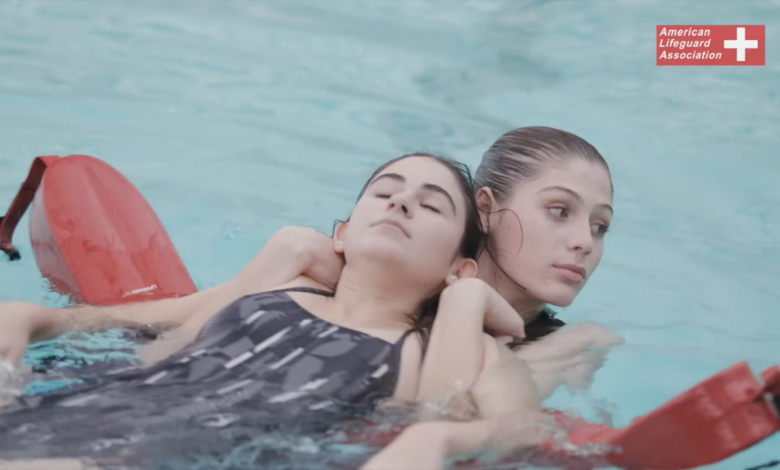A Rewarding Career in Water Safety: Start with Lifeguard Classes

If your calling is helping others, if you carry this love for water, and if you wish to make the difference a career brings, being a lifeguard truly works for you. Lifeguarding does not solely mean a summer job; it is an important profession that saves lives and teaches water safety. The first step in this direction is to sign up for lifeguard classes, wherein you will learn the fundamentals of rescue techniques, first aid, and CPR.
One of the most prestigious organizations providing certification for lifeguards is the American Lifeguard Association. Some say that training with ALA is still the best because of its strict policies and training programs which prepare one to act in case of any emergency concerning confidence and professionalism.
Why Water Safety?
Lifeguards are instrumental in preventing drowning and ensuring safety at different facilities such as pools, beaches, and water parks. According to the Centers for Disease Control and Prevention (CDC), drowning is one of the leading causes of accidental death, particularly in children. A well-trained lifeguard marks a significant reduction in risks through rule enforcement, rescue, and emergency assistance.
Besides the life-saving side of things, lifeguarding has other benefits:
- Job security- Key lifeguards are in demand at pools, beaches, and resorts all year long.
- Flexible hours- Great for students or those looking for seasonal jobs.
- Career opportunities- Possible advancement to head lifeguard, instructor, or aquatic manager.
- Transferable skills- CPR and first-aid skills, as well as leadership experience, can serve you well in numerous other fields.
American Lifeguard classes are a prerequisite for employment. The American Lifeguard Association runs organized programs that conform to sector regulations. Here’s what you will learn regarding:
1. Water Rescue Techniques
Lifeguard classes feature a wide range of rescue techniques, including:
Active rescues for the victim- /how to reach and assist a distressed swimmer.
Rescue methods for passive victims are unconscious.
Spinal injury management for anyone who potentially has sustained neck and/or back injuries.
2. CPR & First Aid Training
Other major issues in training for lifeguard certification are:
- CPR for adults, children, and infants.
- AED automatic external defibrillator in case of cardiac emergencies.
- First aid for injuries studies in cuts, fractures, and heat-induced sickness.
3. Surveillance & Prevention
While monitoring types of emergencies is vital, so too is preventing them. The lifeguard classes teach:
- Scanning techniques- Find out how to effectively scan larger crowds.
- To identify distress signals- Seeing the subtle signs of someone drowning.
- Enforce safety- The prevention of risky behaviour before an accident takes place.
4. Physical Fitness Requirements
Lifesavers must be fit swimmers. Most certification requirements are:
- Swimming a given distance, such as 300 yards, continuously
- Treading water for 2 minutes or longer without the use of hands
- Recovering a weight of 10 lbs from a deep area
Why Choose the American Lifeguard Association?
An organization that is reputable in any area is important when training for lifeguarding. The American Lifeguard Association (ALA) is familiar to many in lifeguarding certification. The ALA is known for:
- Nationally Recognized Certifications – ALA certifications are accepted in pools, beaches, and water facilities in the USA.
- Experienced Instructors – The courses are taught by professionals having hands-on experience in rescue operations.
- Blended Learning Options – Flexible training consists of e-learning courses and skill evaluation in person.
- Focus on Real-World Scenarios – Training prepares lifeguards for real emergencies as opposed to textbook situations.
- Recertification & Continuing Education – Lifeguards must periodically renew their certification, and the ALA provides refresher courses in which to keep their skills up to date.
Career Paths in Water Safety
Multiple opportunities open up for lifeguards after certification:
1. Pool Lifeguard:
Public pools, private clubs, or hotels
Enjoining rules, rescuing, and maintaining a safe environment
2. Beach Lifeguard:
Patrol ocean fronts or lakes, in and out of waves, currents, and marine hazards
Open-water rescue training
3. Waterpark Lifeguard:
Monitors slides, wave pools, and lazy rivers
Handles high-volume crowds and complex attractions
4. Aquatic Instructor or Swim Coach:
Teaches swim lessons or coaches competitive teams
Additional certifications in swim instruction
Read more: Komilfo: Elevating Nail Art to Perfection
5. Emergency Medical Services (EMS) or firefighting:
Experience in lifeguarding proves extremely valuable in taking up a future career in EMS, fire rescue, or even law enforcement.
6. Aquatics Manager or Director:
Manages the entire facility, including training staff for safety procedures, emergency procedures, and everything that concerns operations
Requires years of experience and leadership skills
Lifeguarding Success Tips
- Stay fit – Regular swimming and strength training keeps you ready for a rescue.
- Remain Alert – A good lifeguard is always on his toes; it doesn’t matter if anything is going on or in the midst of a quiet shift.
- Continuous Learning – Enroll in advanced courses involving water rescue, first aid, and various emergency measures for managing oxygen.
- Soft Skills Development – Essentials in communication, teamwork, and problem-solving.
- Networking in the Industry – Joining lifeguard associations and training workshops would be beneficial.
Final Word
A career in water safety can be tough and extremely rewarding. By taking lifeguard classes from the American Lifeguard Association, you will learn the skills to save lives while creating job opportunities. Such opportunities comprise more than just obtaining a summer job or choosing a long-term profession. Lifeguarding will change how one views experience alongside personal growth and the potential for real impacts.
Willing to make the big splash? Then find an ALA-certified lifeguard class near you and start with it today on your way to a fulfilling career in water safety!





